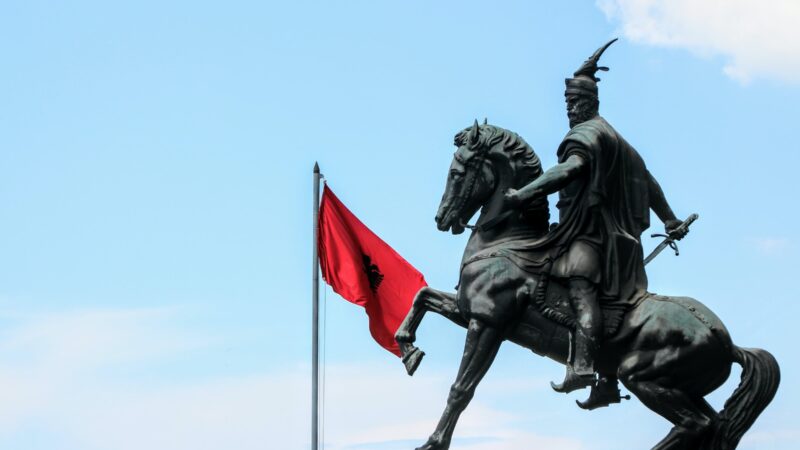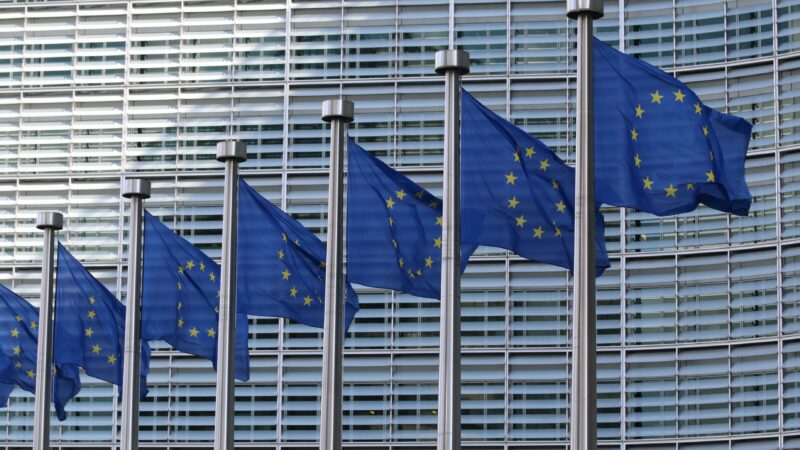The Queen of Great Britain, Her Majesty Elisabeth II of the House of Windsor, has passed away. Her throne was inherited by her son, and heir, King Charles III of the House of Windsor. As one era ends, a new one dawns. And this new age for the United Kingdom, in essence, began in 2016 AD.
In 2016 AD, a referendum was held in the United Kingdom, one which would decide the fate of Great Britain, as well as Europe. The people of Albion voted to leave the European Union, a bureaucratized international organization which attempts to hold together the various nation-states of Europe. This moment was a historic one, for both Britain and Europe. Since Brexit, Europe is slowly transforming into a Franco-German union, as it naturally should be. Europe can, will and must follow its own historical destiny. The European Union, as it currently stands, may reform or break apart – but a new union will rise to take its place. In his book Imperialism: The Last Stage of Capitalism, the Russian revolutionary, Vladimir Lenin, foresaw, in passing, the creation of a Pan-European Bloc. On the other hand, the great British historian, Arnold J. Toynbee, declared that the next stage of Western Civilization is the Universal State. The European Union is one such state – or at least one of the first step towards it. The United States of America, on the other hand, also play the role of the Universal State in modern Western history, either as a true Universal Empire or its nucleus.
Then, an important question must be asked: what future awaits the people of Great Britain?
Now, when the United Kingdom has left the European Union, it certainly cannot, and will not, go back on its decision. It must not. On the other hand, the proud people of Albion cannot join the United States – and become one of its fifty federal states. Then where does Britain go from here?
There is only one sane decision to make – London must form a new bloc, a new international organization. An Anglosphere, if you will. Some may call it CANZUK. Others have named it as the Imperial Federation, a century ago. A political and economic union between Great Britain, Canada, New Zealand and Australia. This would either serve as Britain’s own attempt towards a Universal State, or yet another step towards a Western Imperium in the making. History will decide. But this Anglosphere would not only ensure the survival of Great Britain, but it would almost certainly guarantee its return as one of the Great Powers of the XXI century, rivaling the likes of the United States, the European Union, China, India and Russia.
Statistically speaking, it would be an enormous political entity. Its total area, somewhere around 18 million square kilometers, would place it as the world’s largest country. Its population of 136 million souls would place it right behind Russia, while its 7.6 trillion dollar GDP (nominal) would ensure its place as the world’s third largest economy, behind the likes of America and China. This new Great Power would possess one of the finest military forces in the modern world, reinforced with British nuclear weapons. Few would dare to challenge such a player of world politics.
Recent polls, carried out by CANZUK International – a think-tank dedicated to realizing such a union – show that the peoples of Australia (73% in favor), Canada (76% in favor), Great Britain (68% in favor) and New Zealand (82% in favor) would strongly support the formation of this quite unique bloc. These peoples share a common language, a common culture, an already integrated intelligence system, as well as a monarchic tradition. Such a move would cauterize the Quebecois as well as the Scottish independence movements, offering them broad autonomy, while maintaining their place within this grand Anglican confederation.
This idea, however, is not without its detractors.
Those on the Left would argue that this potential bloc would be a resurgent British Empire. This type of criticism is not without merit. For many peoples across the periphery of the Capitalist World-System the British Empire is synonymous with exploitation and colonialism. Rightly so, one might add. But the Left forgets one thing – for better (or worse in some rare cases), these countries are now independent nation-states, ready to carry on their own crosses and follow their own destinies, in this age of post-colonialism. Judging the sins of the British Empire is their job. Weighing its influence on their history is their duty. They must navigate the seas of fate on their own, and discover new possibilities for themselves. Thus, although one may criticize the excesses of the British Empire, the modern British man must not allow his judgment to be clouded by guilt. What is done is done. As the Winter Stage of Western History sets in, the people of Albion must look towards the future.
Others on the Left may argue that such a union would be a union of exclusively “white” peoples, excluding former British colonies such as India, South Africa or Nigeria. This argument is quite laughable, though. India, South Africa and Nigeria, as well as many other former British colonies, belong to different Cultures and Civilizations – while Great Britain, Canada, New Zealand and Australia are a part of Western Civilization.
For the heirs of Albion there can be no further discussion about this topic. The question is not about what is right or what is wrong – but what is necessary. The establishment of an Anglican Union should be the first, and foremost, goal of any rational British leader. And this goal, this ambition, should be endorsed by the Crown. Only then will the great nation of Britain reclaim its former glory, its last moment under the proverbial sun, in this Last Age of the West – before its inevitable end.
If His Majesty, King Charles III, alongside the British Government, decides to take this road towards the unification of the United Kingdom and its Daughters – he will go down in history as one of Britain’s greatest monarchs. As a connoisseur of Perennial Traditionalists, such as Rene Guenon, King Charles III knows what future awaits – not only the West, but the entire world as well. History has entrusted to Charles III a great Destiny.
Britannia must rule the waves – otherwise Britons shall become slaves. To whom it matters not.
The Hour of Decision grows near.
Time is of the essence.



